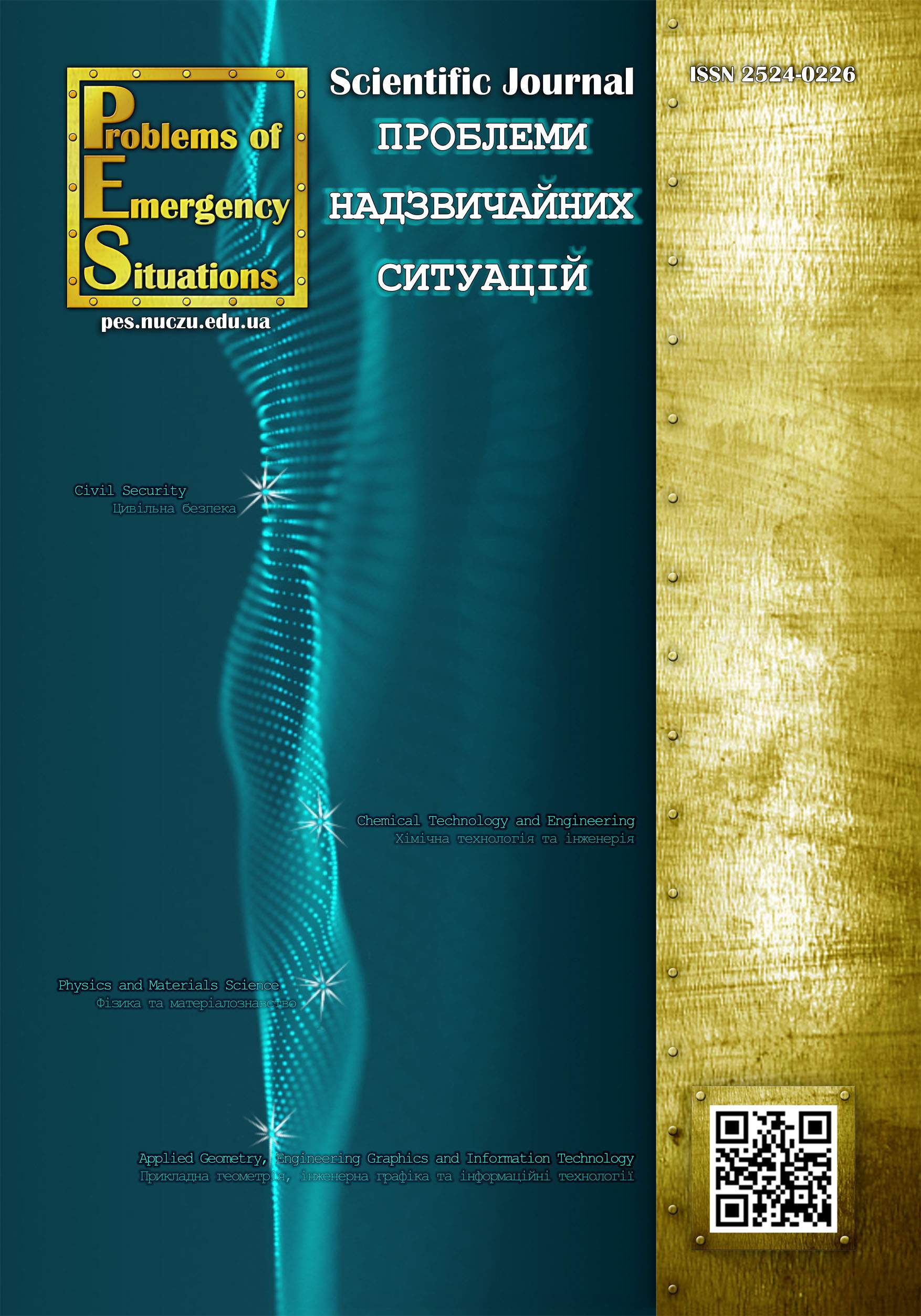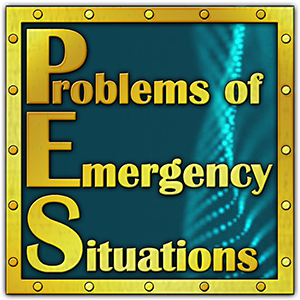Influence of smoke density on the parameters of the acoustic device of the rescuer's equipment
Alexander Levterow
National University of Civil Defenсe of Ukraine
http://orcid.org/0000-0001-5926-7146
Yevhenii Statyvka
National University of Civil Defenсe of Ukraine
http://orcid.org/0000-0003-1536-2031
DOI: https://doi.org/10.52363/2524-0226-2023-37-7
Keywords: acoustic device, sensor, acoustic resistance, reflection coefficient, visual control
Аnnotation
Experimentally determined correction values of the distance to the obstacle depending on the acoustic impedance of the environment for the acoustic device of the rescuer's equipment. The measurement results were obtained using the developed experimental setup, which took into account, in real time, changes in acoustic impedance and temperature of the environment using a two-channel temperature meter and an optical penetration sensor of the environment. The temperature of the environment (in the confined space) varied from 20 °C to 60 °C, and the optical penetration index from 0 to 100 %, where 100 % corresponds to complete optical opacity of the environment. Dependencies of the propagation of acoustic waves upon changing the optical permeability of the medium and temperature were obtained. The correction value for the distance to the obstacle calculated by the acoustic device at a distance of 1000 mm was (+0,013 m). The relative error during the measurements did not exceed 2 %. It was found that when the wave impedance increases, the indicators of the distance to the obstacle decrease, so the corrective dependence has a positive value. The obtained results make it possible to increase the reliability of the readings of the acoustic device as an additional equipment of the rescuer. The data obtained as a result of the experiment make it possible to display the shape of the obstacle in more detail. Approximating polynomials of the reflection coefficient of acoustic waves depending on the volume content of inclusions at angles of incidence from 0 °С to 30 °С have been determined. The use of the obtained polynomials allows to increase the speed of the program code of the control microcontroller of the acoustic device. The obtained dependencies are taken into account in the calculation algorithm of the program code of the microcontroller of the acoustic device for determining the shape and distance to the obstacle, which makes it possible to increase the efficiency of the rescuer's orientation in conditions of unsatisfactory visual control during emergency rescue operations.
References
- Kostenko, T. V. (2017). Osoblyvosti travmatyzmu riatuvalnykiv v Ukraini. Vi-sti Donetskoho hirnychoho instytutu, 1(40), 165–169. ISSN 1999-981X
- Lievtierov, O. A., Statyvka, Y. S. (2022). Vyznachennia parametriv akustych-noho pryladu ekipiruvannia riatuvalnykiv. Problems of Emergency Situations, 2(36), 280–295. doi: 10.52363/2524-0226-2022-36-21
- Hiremath, N., Kumar, V., Motahari, N., Shukla, D. (2021). An Overview of Acoustic Impedance Measurement Techniques and Future Prospects.Metrology, 1, 17–38. doi: 10.3390/metrology1010002
- Kirtskhalia, V. (2021). The dependence of the speed of sound in the Earth’s atmosphere on its density and the correction of Mach’s number. Ilia Vekua Sukhumi Institute of Physics and Technology. Conf. Series: Materials Science and Engineering, 1–7. doi: 10.1088/1757-899X/1024/1/012037
- Teregulova, E. A. (2021). Features of the Passage of Acoustic Waves at Right Angle through a System of Layers of Multifractional Gas Suspensions.Lobachevskii Journal of Mathematics, 42(9), 2222–2225 doi: 10.1134/S1995080221090262
- Choon, M. P., Sang, H. (2013). Propagation of acoustic waves in a metamaterial with a refractive index of near zero. Applied Physics Letters, 46–57. doi: 10.1063/1.4811742
- Pozdieiev, S., Nuianzin, O., Sidnei, S., Shchipets, S. (2017). Computational study of bearing walls fire resistance tests efficiency using different combustion furnaces configurations. MATEC Web of Conferences, 116. doi: 10.1051/matecconf/201711602027
- DSTU EN 469:2017. Zakhysnyi odiah dlia pozhezhnykiv. Vymohy shchodo pokaznykiv yakosti zakhysnoho odiahu dlia pozhezhnykiv. Available at: http://online.budstandart. com/ua/catalog/doc-page?id_doc=82840
- Wilk-Jakubowski, J. (2021). Analysis of Flame Suppression Capabilities Using Low-Frequency Acoustic Waves and Frequency Sweeping Techniques.Department of Information Systems. Kielce University of Technology, 5–8. doi: 10.3390/sym13071299
- Gubaidullin, D. A., Teregulova, E. A. (2019). Propagation acoustic signal in the multifractional gas suspension. Journal Physics. Journal of Physics: Conf. Series, 1–5. doi: 10.1088/1742-6596/1328/1/012079
- Kenney, L. W., Degroot, D. W., Lacy, A. H. (2004). Extremes of human heat tolerance: life at the precipice of thermoregulatory failure. Journal of Thermal Biology, 479–485. doi: 10.1016/j.jtherbio.2004.08.017














